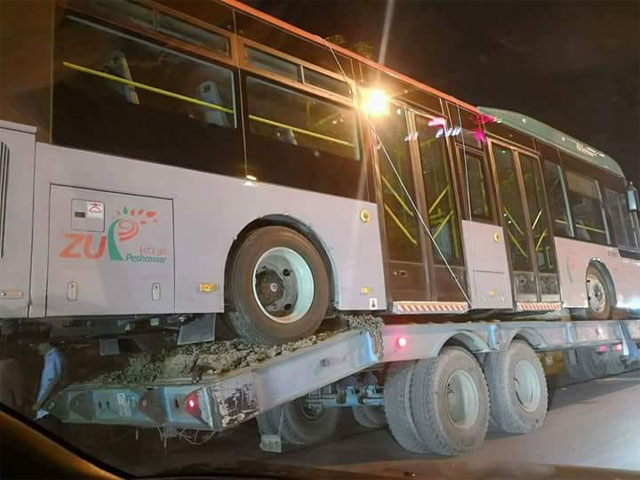
TransPeshawar—the urban mobility company created by the Khyber-Pakhtunkhwa government to run the Peshawar Bus Rapid Transit (BRT) project — has selected the popular intercity bus and intra-city taxi service Daewoo Pakistan to manage the vehicle operations of BRT from the bus depot in Chamkani.
The private bus service has been handed a contract spanning 12 years.
The decision to outsource operations was taken in a meeting of TransPeshawar’s board, read a statement issued by the company’s spokesperson on Wednesday.
It adds that the Daewoo Pakistan Express Bus Service Limited was selected as the vehicle operating company (VOC) for the Chamkani Depot at the end of a competitive process as per the K-P Public Procurement Authority Rules.
The vehicle operating company (VOC) or operator will be responsible for managing the refuelling of buses, their maintenance, the hiring of drivers and allied staff and their training to ensure smooth bus operations.
TransPeshawar, it said, needed to hire two key service providers for running BRT, including the VOC and the BRT System Control and Good Services.
The BRT has two depots. One is located in Chamkani while the other is located in Hayatabad. They were specially built to service the BRT and will be equipped with facilities for fueling, cleaning, vehicle maintenance workshops with routine spare parts for the BRT buses.
The Chamkani depot is the larger of the two depots where 128 buses — including 93 buses which are 12 metres long and 35 articulating buses which are 19 metres long — are stored and maintained. Buses here will be operated by Daewoo Pakistan.
Once TransPeshawar finalises the bus schedule, the service provider or VOC will operate the buses per the schedule.
“We have built in penalties in the contract to safeguard the best interest of the passengers. These include financial penalties against behavioural issues and non-compliance with key performance indicators (KPIs),” added the statement, noting that some of critical KPIs include road safety, timely and accurate operations, ensuring good conditions of the fleet, transparency in financial and reporting, good behaviour with passengers, compliance with gender plan and adherence to environmental guidelines.
To encourage women passengers to use the bus, the vehicle operation company is required to ensure that at least 15 per cent of their staff is female.
Moreover, the operator will be bound to hire locals, especially those who have been engaged in the public transport system in Peshawar.
BRT operators are usually paid on the basis of the number of kilometres the buses run. This becomes one of the key factors in an operator’s selection apart from other factors such as company experience, credentials, and capacity to handle such operations.
In this regard, the BRT has finalised a rate of Rs177 per kilometre. The operator will be paid based on the cumulative number of kilometres run by all their buses in a month.
Construction work on the BRT project has seen delays with some officials suggesting that it will not be complete until the end of the year — overshooting its original deadline by at least six months.
All the while, though it has seen its costs rise from Rs49 billion to Rs69 billion.
TransPesahwar itself has seen no shortage of tumult with some of its senior engineers either being fired or quitting it owing to objections in the way the project was being built or under pressure from the political administration of the Pakistan Tehreek-e-Insaf (PTI) led K-P government in May after the project faced delays.
In the first week of May TransPeshawar Peshawar CEO Altaf Durrani had been fired by former chief minister Pervez Khattak for allegedly causing delays in purchasing a fleet of buses for the BRT.
The TransPeshawar Board of Directors Chairman Javed Iqbal, the company chief financial officer Safdar Awan and General Manager Operations and Market Development Mohammad Imran had all resigned in reaction to Khattak’s trigger-happy action.
Less than a month later, Gohar Muhammad Khan, an assistant engineer for project consultant Mott MacDonald Pakistan (MMP), had tendered his resignation while voicing concerns over the quality of work on the BRT project.
Published in The Express Tribune, October 4th, 2018.











COMMENTS
Comments are moderated and generally will be posted if they are on-topic and not abusive.
For more information, please see our Comments FAQ